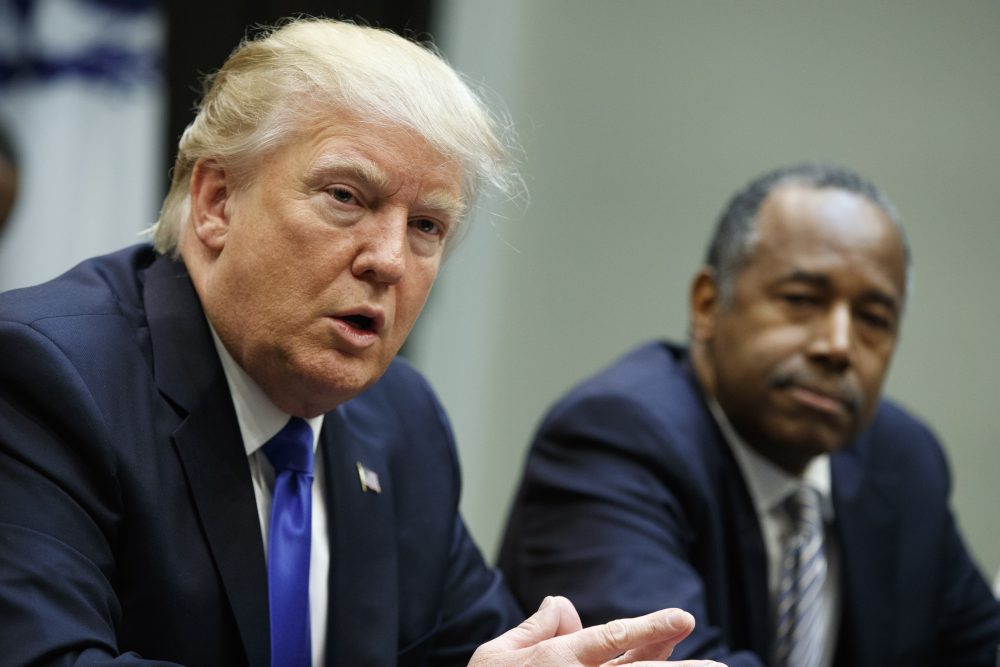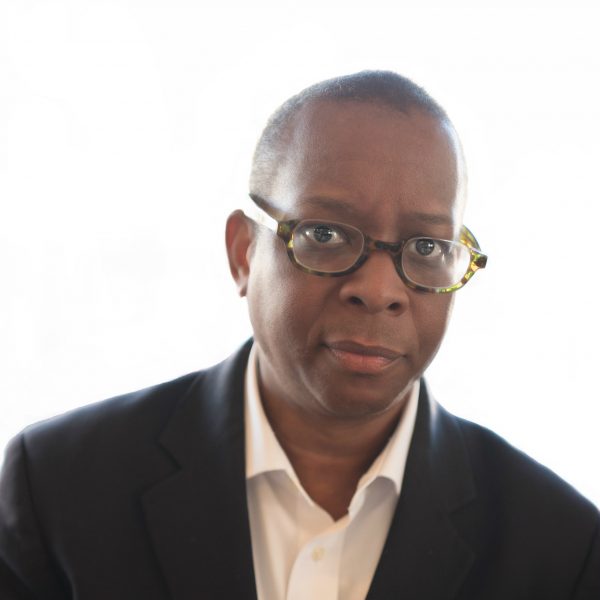Advertisement
Trump Demonizes Blacks Rather Than Seeking Real Solutions To Urban Violence

COMMENTARY
How do you manufacture hate-filled public narratives that conspire to corrode wide swaths of our national consciousness? Ask President Donald Trump, who is plainly gifted at the dark arts of contempt.
A pointed example of Trump’s unlovely civic magic is his increasing focus on black people who live in unsafe neighborhoods across the country. Take Chicago, for instance.
“What's going on in Chicago?... What the hell is going on?” asked Trump late last month in Philadelphia as he alluded to the gang violence gripping some neighborhoods in that city. Trump’s exasperated query has touched off a simmering debate about how his administration will grapple with the violence that plagues big cities across the nation. Some wonder if Trump has a plan to reduce inner-city violence by means of heavy-handed paramilitary suppression.
The president’s take on urban crime is nothing new. And he seems ready to intervene. At a White House African American History Month listening session last week, when the issue of street violence was raised, the president’s passions flashed brightly.
“...Chicago is totally out of control ... If [citizens are] not going to solve the problem...then we're going to solve the problem for them because we're going to have to do something about Chicago. Because what's happening in Chicago should not be happening in this country,” the president said.
Throughout his campaign for the White House, Trump pointedly painted black neighborhoods as murderous wastelands — killing fields where violence is prevalent and where blood permanently stains the streets. With execrating rhetoric, Trump constructed a false narrative where blacks were being indiscriminately “shot” on the streets of America’s cities. Incredulously, he followed such remarks with bullying, inciting black voters by asking, “What do have to lose?” by electing him.
But Trump is not the only modern president to rain down racial aspersions and corrupting public perceptions about race. Trump’s references to the ubiquitous black murderers who roam the urban enclaves of our nation is reminiscent of a past president who built up similar stereotypes against African-American citizens.
Ronald Reagan raised the specter of the black welfare queen as he campaigned for the White House.
“In Chicago, they found a woman who holds the record,” said Reagan at a presidential primary rally. “She used 80 names, 30 addresses, 15 telephone numbers to collect food stamps, Social Security, veterans’ benefits for four nonexistent, deceased, veteran husbands, as well as welfare. Her tax-free cash income alone has been running $150,000 a year.”
Throughout his campaign for the White House, Trump pointedly painted black neighborhoods as murderous wastelands -- killing fields where violence is prevalent and where blood permanently stains the streets.
For Reagan, this example became the poster child of his administration, which went on to essentially demonized black women living in urban centers during the post-Civil Rights and Black Power era of the 1960s. To Reagan, she represented all black women — the conniving. criminal, female denizen of the inner city who double-dipped in welfare benefits. She was the duplicitous black woman trickster who lied to get extra government benefits as a substitute for work.
This narrative forced upon poor black women by President Reagan was stinging, and remains embedded in the public imagination.
The problem with Reagan's assertion, however, was that it wasn’t true. Reagan administration officials could never produce the allegedly widespread numbers of "welfare queens" they so adamantly claimed existed. But the damage was done: Black women were deemed corrupt, licentious and lazy. And the lies led to the draconian Clinton crackdown on welfare in the 1990s.
In the end, Reagan scarred the reputation of generations of poor black women with the canard that African-Americans were not trustworthy — that they were sub-citizens who should feel ashamed to seek sustenance from the state.
Two generations later, Trump is playing the same sad tune to justify attacks on black males in America. In order to burnish his law-and-order profile, Trump is focusing on young black men as emissaries of civic unrest who use violence to hold neighborhoods in fear. This is why Trump favors police “stop-and-frisk” policies that allow law enforcement to apprehend black men — without probable cause — as they walk along city streets. It is why he suggests extra law enforcement measures to stamp down violent upsurges in the inner cities.
Universal pre-kindergarten would be a better solution than systematically suppressing and containing a generation of black men.
To be fair, Trump’s many claims about the crisis of urban violence are not manifestly false. No one denies that the upward murder trend in Chicago is a serious problem. A record 784 people were murdered in Chicago in 2016 — and most of the lives lost were young, black and male. There is no question that abating the murder rate in Chicago is a national priority.
But Trump has turned inner-city violence into an unfair stereotype. When he suggests that violence in Chicago is a metaphor for urban unrest across the nation, he poisons the American mind with falsehoods about black American identity with respect to law and order. And when he says that murder in America is on the rise, he is wrong.
President Trump would do well to construct a careful, comprehensive response to urban violence. He should favor a plan for increasing inner-city employment, for instance, over hints of paramilitary intervention in crime-plagued neighborhoods. Universal pre-kindergarten would be a better solution than systematically suppressing and containing a generation of black men.
Trump should re-think how to handle the issues of violence in Chicago and other cities. It would be foolish and lazy to simply employ reckless stereotypes as an answer to our looming and persistent racial problems.
